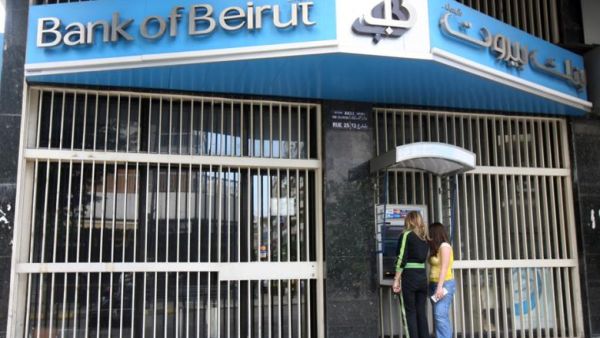Washington wants Lebanon and other countries to prohibit Hezbollah from dealing with all international currencies and not only the dollar, a banker revealed Tuesday. “The Americans made it very clear to Lebanese and Arab banks that the U.S. measures against the finances of Hezbollah should cover all currencies and not only the U.S. dollar,” said a banker who took part in the meeting with the U.S. Treasury and American correspondent banks in Washington and New York.
Speaking on condition of anonymity, the banker stressed that this is the first time the U.S side explicitly said the ban covers all international currencies.
This means that the crackdown on the finances of Hezbollah includes the Lebanese currency.
But the banker refrained from saying if this action will apply to the salaries of Hezbollah’s MPs and ministers. There was a wide debate in Lebanon on whether the Lebanese banks should accept the salaries of Hezbollah MPs.
But this issue was never resolved as many banks were not too keen to accept the salaries of Hezbollah MPs although they receive their wages from the Finance Ministry.
The U.S. has enforced the law which was passed by Congress to tighten the noose on the finances of Hezbollah, viewed by Washington as a terrorist organization.
Central Bank Governor Riad Salameh told the Associated Press Monday that Lebanon will comply with the U.S. law that imposes sanctions on any Lebanese bank which knowingly conduct any relations with Hezbollah.
The Secretary-General of Hezbollah Sayyed Hasan Nasrallah has denied that the party deals with any Lebanese or foreign banks.
The banker added that the U.S side insisted that Lebanese and Arab banks should respond promptly, transparently and accurately to any request made by the American officials regarding terrorism financing.
“U.S. officials were quite keen that this message to Lebanese and Arab banks is non-negotiable,” he added.
The remarks came as a high-ranking delegation from the Association of Banks in Lebanon and the Union of Arab Banks held talks with senior officials from the U.S. Treasury Department, congressional leaders and CEOs of major American banks.
Wissam Fattouh, the secretary-general of the Union of Arab Banks and part of the delegation, told The Daily Star over the telephone that the U.S. officials were quite pleased with the cooperation of Lebanese banks.
“We did not come under pressure from the Americans. On the contrary, they did not have any negative remarks about the compliance of Lebanese banks with all U.S. and international laws to combat money laundering and terrorism financing,” Fattouh said. He added that Lebanese and Arab banks are fully complying with all anti-money laundering and terrorism funding measures.
“The Americans merely underlined the importance of enforcing the law quickly. But they were very happy with the response of the Lebanese banks,” Fattouh explained.
He also ruled out the possibility of targeting any Lebanese banks in the future as in the case of the now-defunct Lebanese-Canadian Bank.
“Joseph Torbey, the president of the Association of Banks in Lebanon and the UAB, played a big role in explaining the actions taken by Lebanese and Arab banks in combating terrorism funding,” Fattouh said.
Torbey said in New York that American officials praised the performance of Lebanese and Arab banks and their commitment to all international criteria, according to a statement from the ABL.
“Lebanese and Arab banks are working within the international criteria and legislation and in accordance with the requirements of correspondent banks,” Torbey said.
He also underscored the importance of total transparency of Lebanese and Arab banks and the quick response to any question asked by international correspondent banks.








